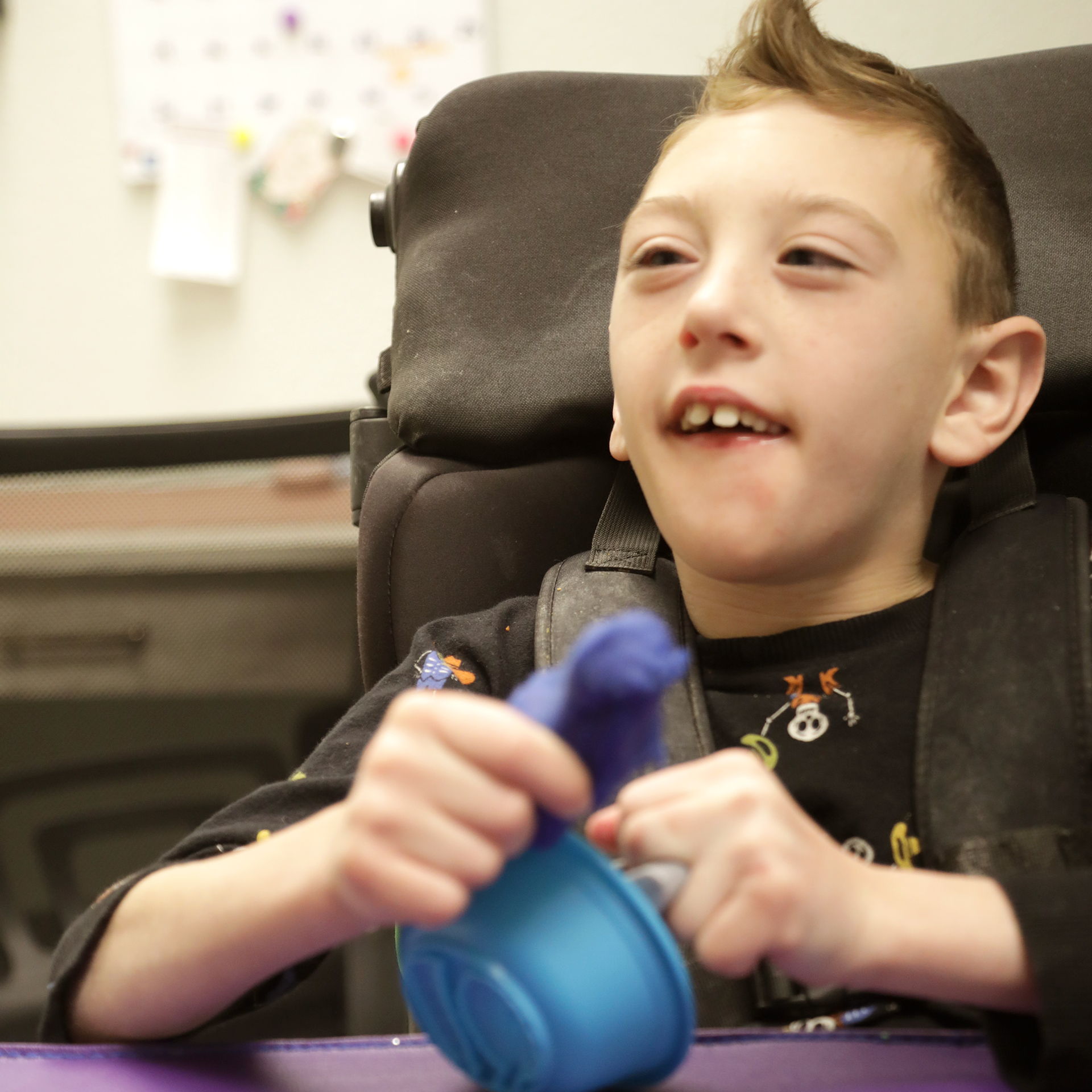The Role of Counseling in Supporting Emotional Growth in Adolescents


Understanding the Importance of Counseling in Adolescence
Adolescence is a pivotal developmental stage marked by emotional complexity and rapid growth. During this period, teenagers face numerous challenges that require supportive guidance to foster healthy emotional development. Counseling has emerged as a vital resource, offering a confidential and nurturing environment where young people can explore their feelings, build resilience, and develop essential life skills. This article delves into the multifaceted role of counseling in supporting adolescents’ emotional maturity, highlighting techniques, benefits, and strategies that empower teens to navigate the complex path toward adulthood.
The Significance of Counseling in Adolescence
What is the importance of counseling in adolescence?
Counseling is crucial during the teenage years, a period marked by rapid emotional growth and development. It offers a safe, private space where young people can openly express their feelings without fear of judgment. This environment encourages teens to explore their identity, beliefs, and values, which are often evolving during this stage.
Through counseling, adolescents develop vital coping skills to handle stress, anxiety, and emotional fluctuations. Techniques like talk therapy and cognitive-behavioral therapy (CBT) help them recognize and manage their emotions better. These approaches also bolster self-esteem and improve communication, fostering healthier relationships with family and peers.
Moreover, counseling addresses specific challenges such as grief, peer pressure, or the influence of social media. It promotes resilience — the ability to bounce back from adversity — and supports overall mental well-being. Engaging in therapy is increasingly seen as an act of strength, encouraging teens to seek help when needed rather than feeling ashamed.
In sum, adolescent counseling plays a pivotal role in guiding teens through emotional, social, and developmental hurdles. It equips them with the skills and confidence necessary for a successful transition into adulthood, making it an invaluable resource for fostering healthier, more balanced young individuals.
Supporting Emotional Growth through Counseling Techniques
 Adolescent counseling utilizes a variety of proven methods to support teens’ emotional development and mental well-being. Central techniques include talk therapy and specific approaches like Cognitive Behavioral Therapy (CBT), which helps teens identify and challenge negative thoughts, and Dialectical Behavioral Therapy (DBT), focusing on emotional regulation and mindfulness.
Adolescent counseling utilizes a variety of proven methods to support teens’ emotional development and mental well-being. Central techniques include talk therapy and specific approaches like Cognitive Behavioral Therapy (CBT), which helps teens identify and challenge negative thoughts, and Dialectical Behavioral Therapy (DBT), focusing on emotional regulation and mindfulness.
Family and group therapy are common formats used to strengthen communication skills, foster peer support, and resolve relational conflicts. These group settings also help adolescents see that they are not alone in their struggles, encouraging shared learning and empathy.
Beyond traditional approaches, experiential therapies such as art therapy, music therapy, and outdoor activities are incorporated to engage teens creatively. These methods facilitate self-expression and help adolescents process complex emotions in a safe, supportive environment.
Counselors also tailor their strategies to developmental needs, employing techniques suited for teenagers’ age and emotional maturity. For example, some sessions may involve interactive activities or technology-based interventions like virtual reality tools, making therapy more engaging.
Overall, the goal of adolescent counseling is to create a safe space where teens can explore their feelings, develop healthy coping mechanisms, and build resilience. The combination of evidence-based therapies and experiential approaches effectively addresses the unique challenges faced by adolescents, guiding them toward positive growth.
Fostering Identity and Resilience in Teens

How does counseling facilitate identity development and resilience in teens?
Counseling provides a safe space where teenagers can openly explore their thoughts, feelings, and beliefs without fear of judgment. This environment of trust encourages self-exploration, helping adolescents understand who they are and what values they hold.
Through various therapeutic techniques, such as cognitive-behavioral therapy (CBT) and reflective exercises, counselors assist teens in recognizing their strengths, interests, and personal goals. This process fosters a clearer and more confident sense of identity.
In addition to self-awareness, counseling teaches crucial coping skills and emotional regulation strategies. Teens learn how to manage stress, handle emotional fluctuations, and respond adaptively to challenges.
Family and group therapy sessions also play a vital role by strengthening social support systems. These therapies improve communication and help teens build resilience by learning from group interactions and family dynamics.
Overall, adolescent counseling empowers young people with the tools, self-understanding, and confidence necessary to develop a cohesive identity. It prepares them to bounce back from setbacks and navigate the complexities of growing up with resilience and self-assurance.
Addressing Emotional Challenges Effectively

Why is counseling important for addressing emotional challenges faced by adolescents?
Counseling plays a vital role in supporting teenagers through their emotional development. It provides a safe, confidential space where teens can openly share their feelings and explore their identity without fear of judgment. This environment encourages honest communication and helps adolescents develop coping skills to manage stress, anxiety, and other emotional difficulties.
During adolescence, young people encounter intense emotions due to rapid brain development and social pressures like peer influence and family conflicts. Counseling helps them build resilience—the ability to recover from setbacks—and enhances their personal growth by fostering self-awareness and emotional regulation.
Therapies such as Cognitive-Behavioral Therapy (CBT), art therapy, or family therapy tailor the support to each teen’s needs. Counselors teach effective problem-solving skills, develop self-esteem, and improve communication, all of which are crucial for healthy emotional functioning.
Addressing mental health issues such as anxiety, depression, or emotional turmoil becomes easier when teens seek help. Counseling also equips them with tools to handle peer pressure and navigate social relationships more confidently.
Seeking counseling is increasingly recognized as a sign of strength, demonstrating that adolescents are proactive about their mental health. It helps them build a foundation for emotional stability and resilience, preparing them to face future challenges with confidence and clarity.
Supporting emotional well-being during these formative years ensures teenagers develop into well-rounded adults capable of managing life's stresses effectively.
More information: Search for "Addressing emotional challenges in adolescent counseling" to explore proven strategies and approaches used by mental health professionals to support teens.
The Role of Emotional Intelligence in Development

What is the role of emotional intelligence in adolescent development?
Emotional intelligence (EI) is fundamental in shaping how teenagers manage their emotions, handle stress, and interact with others. During adolescence, a period marked by rapid emotional and social changes, EI helps young individuals develop resilience—the ability to recover from setbacks and adapt to new challenges.
Research indicates a strong link between high EI and increased resilience among teens. This connection means that adolescents with better emotional understanding and regulation skills are more equipped to navigate the ups and downs of their growing years.
Importantly, emotional intelligence is not fixed. Targeted training programs designed to enhance EI can significantly improve a teen’s coping abilities. These programs often include activities and exercises aimed at strengthening emotional awareness, empathy, and problem-solving skills.
As their EI improves, adolescents tend to experience greater personal growth. They show better emotional stability, increased confidence, and more positive social interactions. Such development fosters improved communication skills, leading to healthier relationships with peers and family.
In conclusion, nurturing emotional intelligence in teenagers is crucial. It directly supports resilience, promotes personal development, and enhances their capacity to build meaningful social connections, all of which contribute to their overall well-being and success.
| Aspect | Impact | Additional Details |
|---|---|---|
| Resilience | Strengthening ability to bounce back from adversity | Correlated positively with EI |
| Adaptive coping skills | Better handling of stress and emotional challenges | Achieved through EI training |
| Personal growth | Increased self-awareness and confidence | Result of improved emotional understanding |
| Social skills | Improved communication and relationship building | Facilitates positive peer and family interactions |
| Outcomes | Enhanced mental health and life satisfaction | Overall benefits of EI development |
Fostering emotional intelligence through educational and counseling efforts remains a vital strategy in supporting adolescent development and preparing youth for healthier, more resilient futures.
The Impact of Counseling Environment and Approaches
Why is a supportive counseling environment critical for adolescents?
Creating a safe, confidential, and non-judgmental setting is essential for effective adolescent counseling. Teens often face intense emotional changes and developmental challenges, making it crucial for them to feel secure enough to express themselves openly. When adolescents know their privacy is respected and their feelings are accepted without judgment, they are more likely to share honestly about their thoughts, struggles, and aspirations.
This supportive environment encourages trust and honesty, which are vital for meaningful progress in therapy. It helps teens explore their identity, values, and emotions more freely, laying the groundwork for personal growth and resilience.
Furthermore, tailored approaches like trauma-informed curricula ensure that therapy is sensitive to each teen’s specific experiences and needs. Incorporating family involvement can also strengthen the therapeutic process, providing additional support and understanding from trusted adults.
Such environments not only enhance the effectiveness of interventions but also help in reducing stigma associated with mental health issues among adolescents. When teens feel safe and supported, they are more engaged and motivated to work through challenges, fostering emotional resilience and well-being.
Ultimately, the quality of the counseling environment plays a decisive role in shaping positive outcomes. It creates a foundation where adolescents feel empowered, understood, and ready to navigate their emotional journeys with confidence.
Supporting Emotional Development in Educational Settings

What role do school counselors play in adolescent social and emotional development?
School counselors are vital in fostering the social and emotional growth of students. They design and run social-emotional learning (SEL) programs that teach teens important skills such as emotion regulation, empathy, and effective communication. These programs help students build resilience and improve their relationships with peers and teachers.
Counselors work closely with teachers and school staff to identify students' needs. Using data-driven approaches, they develop targeted lessons, classroom activities, and whole-school strategies to support emotional well-being. This collaborative method ensures that interventions are tailored and effective.
Research shows that SEL programs led by school counselors lead to better social skills, improved academic performance, and fewer behavioral issues. They also advocate for mental health resources within schools, connecting students to external mental health services when necessary.
Their efforts help create a trauma-informed and inclusive environment, fostering resilience and emotional stability among adolescents. Overall, school counselors serve as key figures in supporting students through their emotional development during these formative years.
Fostering Growth and Strength in Teenagers
In conclusion, counseling is an indispensable tool in nurturing emotional growth among adolescents. By providing a safe environment, employing effective techniques, and fostering resilience and self-awareness, counseling supports teens in overcoming challenges and building a solid foundation for their future. Through collaboration between mental health professionals, families, schools, and community resources, adolescents can navigate this formative stage with confidence and resilience. Recognizing the importance of counseling as a proactive means of promoting emotional well-being empowers teens to lead balanced, fulfilling lives as they transition into adulthood. As society continues to prioritize mental health, the role of counseling will remain central to supporting the emotional development of the next generation.
References
- Why Teen Counseling is Essential for Emotional and Mental Health
- The Importance of Counseling in Adolescence | Alexandria VA
- Supporting Teen Identity Development Through Counseling
- Empowering Youth: The Impact of Adolescent Therapy
- The Role of a Child Counselor in Supporting Young Minds
- The School Counselor and Social/Emotional Development
- Supporting Healthy Adolescent Emotional Development
Recent articles

What to Expect at Your First Therapy Session
Discover what your child’s first therapy session looks like, from rapport building to goal setting, and how families can feel confident starting care.

Celebrating Small Wins: How Therapy Helps Kids Build Confidence All Year Long
Learn why small wins in therapy matter, how they boost your child’s confidence, and simple ways families can celebrate progress all year long.

Empowering Missoula Children to Grow With Confidence and Connection
Learn how ABA therapy in Missoula helps children build communication, independence, and confidence through personalized, family‑centered support at Advanced Therapy Clinic.

Compassionate Pediatric Therapy in Butte, Montana
A welcoming place where every child’s potential is celebrated

How Pediatric Therapy Helps Kids Thrive across Montana and Wyoming
A supportive guide for families exploring therapy options in Billings, Butte, Missoula or Sheridan.

How to Choose the Right Pediatric Therapy Clinic in Billings, Montana
A Parent‑Friendly Guide To Finding The Best Support For Your Child

